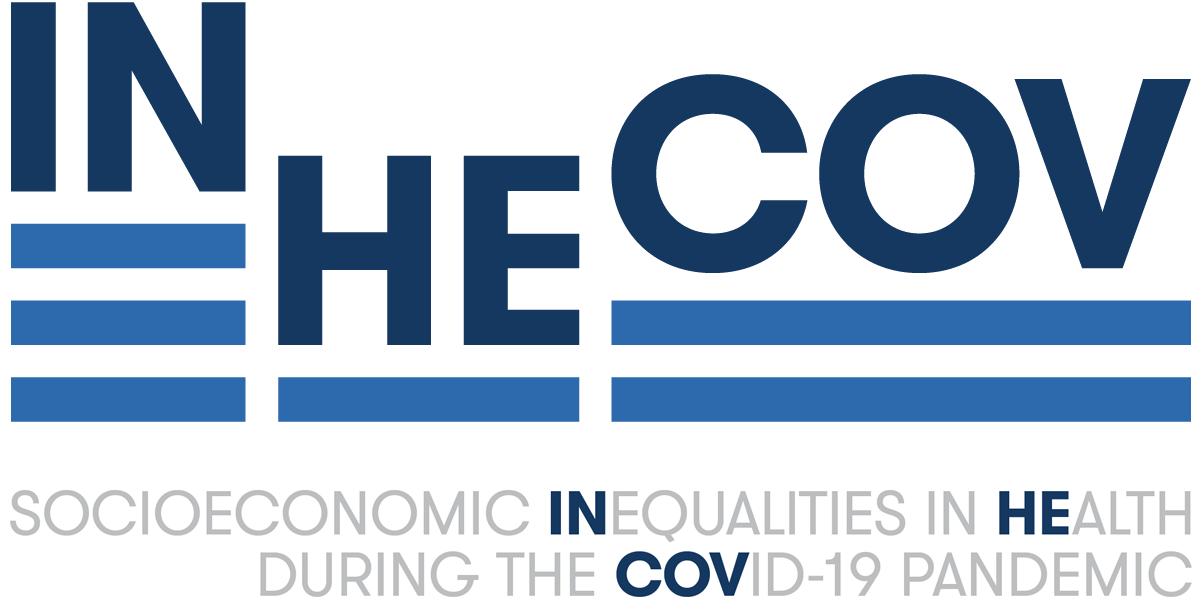Projects
Work package "Direct health impacts of the COVID-19 pandemic for different socioeconomic groups"
The work package investigates socioeconomic inequalities in the risk of infection with SARS-CoV-2 with a particular focus on temporal dynamics during the COVID-19 epidemic in Germany. It also examines whether there are socioeconomic inequalities in disease severity and mortality risk in COVID-19. In particular, the subproject addresses the question of which factors and pathways may lead to a potentially increased risk of infection and severe disease progression in certain socioeconomic groups. Regional analyses of official COVID-19 reporting data as well as analyses with individual-level data will be conducted.
The subproject is located at the Unit for Social Determinants of Health, Department of Epidemiology and Health Monitoring at the Robert Koch Institute. The principal investigator is Dr. Jens Hoebel.
Work package "Occupational inequalities of COVID-19 in Germany"
The overall aim of this work package is to investigate occupational differences in the risk of SARS-CoV-2 infection and COVID-19 disease severity in Germany based on various data sources. This includes the analyses of regional differences of notification data from Robert-Koch-Institute in conjunction with regional indicators of workforce participation, as well as the analyses of harmonized data from seroprevalence surveys across Germany and health insurance data.
The work package is lead by PD DR. Morten Wahrendorf at the Institute of Medical Sociology, Centre for Health and Society (chs), Heinrich-Heine-Universität Düsseldorf, Medical Faculty
Work package "Psychosocial impacts of COVID-19 and non-pharmaceutical interventions for different socioeconomic groups in Germany"
This work package focuses on symptoms of major depression and generalized anxiety disorder before and during the pandemic in different socioeconomic groups. It analyzes several population-based studies that are being conducted by the Robert-Koch-Institute in the course of the pandemic. Goal is to identify socioeconomic inequalities in psychopathological symptoms while taking into account pandemic specific burdens such as homeschooling, social isolation and loss of jobs.
This workpackage will be realized at the Unit for Mental Health, Department of Epidemiology and Health Monitoring, Robert Koch Institute. Dr. Jens Hoebel is the Principal Investigator.
Work package "Inequalities in health by precarious employment status in the context of the indirect side impacts of the NPIs during the COVID-19 pandemic in Germany"
This work package focuses on the social and health consequences of non-pharmaceutical interventions for precarious workers. We will examine whether health inequalities have increased in relation to precarious employment status in the course of the pandemic, what health implications the social consequences of non-pharmaceutical intervention measures have for precarious workers, and how pandemic-related job loss affects the health of precarious workers.
This work package will be realized at the Institute for Medical Sociology, Health Services Research and Rehabilitation Science, Faculty of Human Sciences and Medical Faculty; University of Cologne. Principal Investigator is PD Dr. Timo-Kolja Pförtner.
Work package "Knowledge transfer and consequences for pandemic preparedness"
In this subproject, the research results of the whole INHECOV project will be summarized and discussed with relevant stakeholders with a focus on their implications for future pandemic preparedness. For this purpose, an international workshop with experts will be held to discuss the relevance of social determinants of acute infectious diseases and health equity for possible future epidemics with emerging pathogens. This will result in concrete recommendations for action that will be integrated into training in cooperation with the Academy for Public Health in Düsseldorf.
This subproject is located at all three INHECOV sites. Principal investigators are Dr. Jens Hoebel, PD Dr. Timo-Kolja Pförtner and PD Dr. Morten Wahrendorf.

